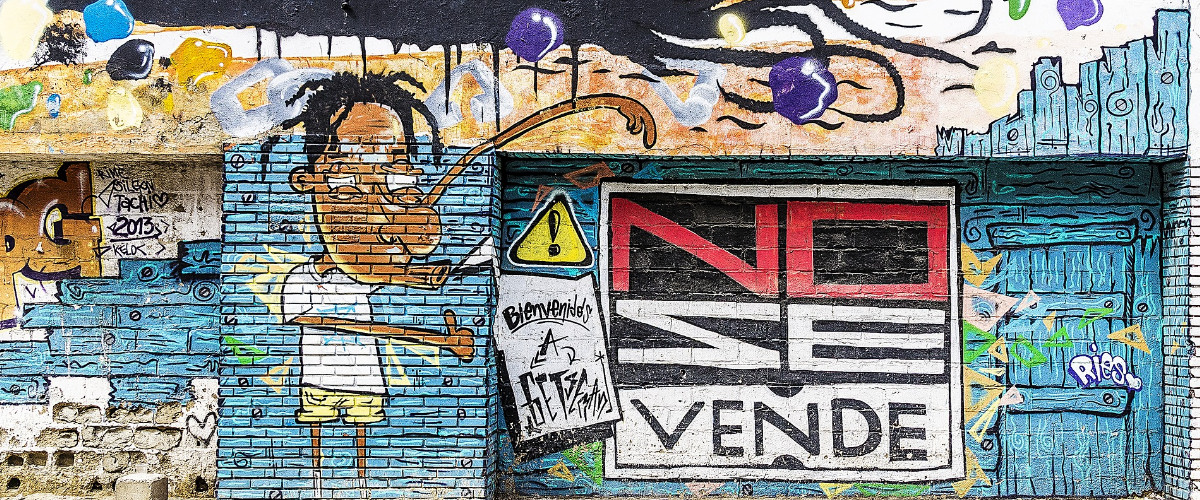
Contested Territories: Interdisciplinary Dialogues on Conflict, Resistance and Development Alternatives in Latin America
Academics associated with project:
- Philipp Horn (Urban Studies and Planning, University of Sheffield),
- Laura Loyola (Hernandez School of Geography, University of Leeds),
- Phil Roberts (Department of Politics and International Relations, University of York)
- Beatrice de Carli (School of Architecture, University of Sheffield)
- Victoria Habermehl (Urban Institute, University of Sheffield)
- Melanie Lombard (Urban Studies and Planning, University of Sheffield)
- Sara Gonzalez (School of Geography, University of Leeds)
- Michael Janoschka (School of Geography, University of Leeds)
- Thea Pitman (School of Languages, Cultures and Societies, University of Leeds)
- Nicolas Salazar Sutil (School of Performance and Cultural Industries, University of Leeds)
- Maria Eugenia Giraudo (IGDC, University of York)
- Jean Grugel (Department of Politics and International Relations, University of York)
- Joshua Kirshner (Department of Environment and Geography, University of York)
External Collaborators: University of Sheffield, University of Leeds
Funder: White Rose Consortium
Recent political changes in Latin America point towards an end of the ‘pink tide’, a return of nationalist, (neo)colonial and neoliberal ideologies, and a shift away from inclusive and sus-tainable development approaches. Instead, as evidenced in recent research by lead academic Horn and Co-I Grugel, political and development priorities of governments (re)centre around boosting economic growth through real-estate speculation, infrastructure projects, and (neo)extractivism. Such interventions lead to widespread violations of human rights and rights to nature. They also result in displacement of local communities like indigenous peoples and informal settlement residents. In this context, local communities are often actively involved in resisting displacement, challenging uneven patterns of development and advocating for development alternatives based on grassroots knowledge such as Sumak Kawsay (good living), decoloniality, degrowth, and the right to the city.
These alternatives emerge in relation to what we define here as Contested Territories, a concept in which territory denotes the production and appropriation of space and knowledge(s) in and through often overlapping cultural, economic, environmental, political and spatial conflicts occurring at multiple sites, places and scales. However, knowledge about these di-verse and situated alternatives remains partial and fragmented. At the same time, more knowledge is required on which communities resist, when and how they resist and the out-comes of conflicts or the articulation of alternatives.
This project aims to address these gaps by advancing knowledge about the Contested Territories of development and politics in Latin America. It brings together a team of social science, arts, humanities and environmental researchers from Sheffield, Leeds, and York with wide expertise in this area, and capitalises on their broader Latin American networks. This will contribute to interdisciplinary dialogues and the visibility of White Rose Leadership in a significant emerging field of research and practice.
Contact us
Interdisciplinary Global Development Centre
igdc@york.ac.uk
01904 323716
Department of Politics and International Relations, University of York, Heslington, York, YO10 5DD, UK
Twitter
Contact us
Interdisciplinary Global Development Centre
igdc@york.ac.uk
01904 323716
Department of Politics and International Relations, University of York, Heslington, York, YO10 5DD, UK
Twitter